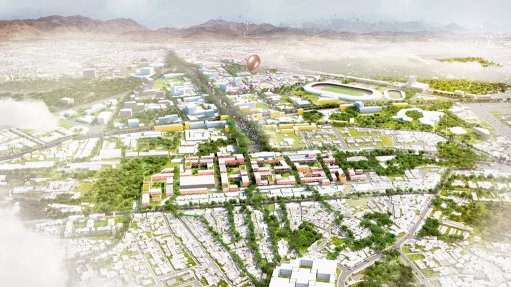
“Cities by their traditional definition are places of opportunity and access, yet for many people living in African cities today this is not the case. Historical spatial and economic exclusions have created ‘large and poor’ cities. At Arup we believe that the future of African cities should offer equal opportunities and a greater participation in the social, economic and political life of cities through a planned and principled approach to their development,” said Nico Venter, associate director, Cities, Arup, at the recent African Real Estate and Infrastructure Summit in Cape Town 2-3 November 2016.
Venter, who presented a paper on ‘Transit Oriented Development in Addis Ababa’ went on to say: “It is essential to have a contextual understanding of the urban environment that you function within, to identify what opportunities infrastructure (planned, existing or new) offer a city and its users while optimising the use and applicability of that particular infrastructure. One has to unpack these opportunities in small practical steps that can be implemented and multiplied (and adjusted) throughout the urban environment by multiple role players.”
Arup recently completed a transit orientated development (TOD) masterplan for the light rail transit (LRT) system in Addis Ababa. The project focused on realising the economic potential of the key stations along the light rail system while regenerating the city. The plan employed the physical infrastructure of the LRT to unlock multiple gains for the social upliftment and economic prosperity of its citizens.
“In particular, the TOD’s broad based benefits were demonstrated through measuring potential outcomes, communicating these outcomes and capturing the value created. An accompanying financial model was developed that presented a proposed development approach, phasing plan and institutional structuring towards implementation. A key focus of the proposed development agenda was to advance partnerships, ensure broad based economic benefits and guarantee public infrastructure inclusion; towards the transformation of African urban environments.
“The challenges in the real estate and infrastructure sectors in South Africa include the need for proper planning and design; more appropriate legislation in support of planning and implementation; structuring of appropriate project finance that includes capital, operational and maintenance costs; a need to separate pro-poor and pro-business policies; and a better understanding of the value of good design,” concluded Venter.